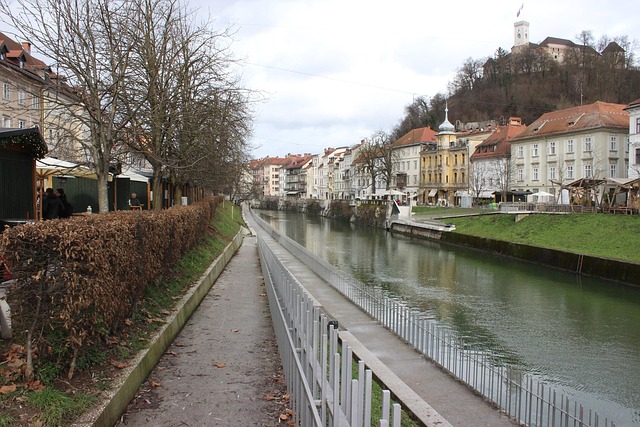Karachi's North Nazimabad faces unique water challenges due to population growth and climate fluctuations, marked by summer water cutoffs, low pressure, and contaminated sources. While improvements like modern filters and smart metering show progress, securing sustainable water supplies is crucial for the area's development. Karachi's historical transition from natural to structured water systems has led to advanced infrastructure today, but rapid urbanization demands innovative solutions like smart management and renewable energy integration. Community engagement is vital for tailoring future water supply services; through feedback and collaboration, North Nazimabad can address historical issues and ensure clean water access for a healthier, more prosperous future within Karachi's bustling metropolis.
Karachi’s North Nazimabad faces perennial water supply challenges, exacerbated by rapid urbanization. This article delves into the intricate web of issues plaguing this vibrant yet bustling area. We explore the current state of its water infrastructure, tracing historical perspectives on water management in Karachi. Furthermore, it highlights innovative solutions and emphasizes the pivotal role of community engagement in securing a sustainable water supply for North Nazimabad’s future, offering a comprehensive glimpse into the city’s ongoing quest for robust water services.
- Understanding Water Supply Challenges in North Nazimabad, Karachi
- The Current State of Water Infrastructure in the Area
- Historical Perspective: How Has Water Management Evolved?
- Innovative Solutions to Ensure Sustainable Water Supply
- Community Engagement and Future Prospects for Improved Water Services
Understanding Water Supply Challenges in North Nazimabad, Karachi

North Nazimabad, a vibrant neighborhood in Karachi, faces unique water supply challenges that require meticulous attention and innovative solutions. The city’s rapidly growing population and varying climatic conditions exacerbate existing water infrastructure strain. During peak summer months, water scarcity becomes more pronounced, with residents often experiencing prolonged periods of water cutoffs or low pressure. This issue not only affects daily routines but also poses significant challenges to local businesses and industries that heavily rely on a steady water supply.
Furthermore, the quality of available water is another concern. Karachi’s water sources face pollution from industrial waste and untreated sewage discharge, leading to health risks for residents. Understanding these challenges is crucial in developing sustainable solutions that can enhance water accessibility and security for North Nazimabad’s diverse community, ensuring a healthier and more prosperous future for the area within the bustling metropolis of Karachi.
The Current State of Water Infrastructure in the Area

In Karachi, particularly in areas like North Nazimabad, the current state of water infrastructure is a mix of outdated systems and recent developments. The region relies heavily on a combination of public and private water supply networks, with several community-managed water schemes complementing the main city supplies. While these systems have been progressively improved, they still face challenges such as regular water disruptions, low pressure during peak hours, and occasional contamination due to aging pipes and inadequate maintenance.
The lack of unified management and coordination among various stakeholders further exacerbates these issues. However, recent initiatives by local authorities and private enterprises have brought some improvements. These include the installation of modern water filters, the upgrade of distribution networks, and the introduction of smart metering to ensure more efficient water usage. Such efforts point towards a future where North Nazimabad residents can expect better access to clean and reliable water supply, playing a crucial role in the overall development and well-being of the area.
Historical Perspective: How Has Water Management Evolved?

Water management in Karachi, particularly in areas like North Nazimabad, has evolved significantly over time. Historically, the city relied heavily on natural water sources such as rivers and groundwater for its inhabitants’ needs. With the rapid urbanization and population growth of Karachi, managing this vital resource became a significant challenge. The early 20th century saw the introduction of more structured water supply systems, with the laying of pipes and the establishment of treatment plants to ensure cleaner and more accessible water for Karachis.
Over the years, as the city continued to expand, so did the complexity of water management. The need for efficient distribution networks became paramount, leading to the development of advanced infrastructure. Today, Karachi’s water supply is a well-organized system, incorporating modern technology and treatment methods to cater to the diverse needs of its residents. This evolution underscores the city’s commitment to providing sustainable and reliable water solutions, adapting to both historical practices and contemporary challenges.
Innovative Solutions to Ensure Sustainable Water Supply

In the bustling metropolis of Karachi, ensuring a sustainable water supply is an ongoing challenge due to rapid urbanization and rising demand. However, innovative solutions are being explored to meet this critical need. One such approach involves implementing smart water management systems that utilize advanced technology for efficient distribution and monitoring. These systems can help detect leaks and manage consumption in real-time, minimizing wastage and maximizing the reach of available resources.
Additionally, the integration of renewable energy sources into water supply infrastructure is gaining traction. Solar-powered pumping stations, for instance, offer a sustainable alternative to conventional methods, reducing operational costs and environmental impact. By adopting these cutting-edge strategies, North Nazimabad, like other areas in Karachi, can secure a resilient water supply that supports both current needs and future growth, ensuring a healthier and more prosperous community.
Community Engagement and Future Prospects for Improved Water Services

In the vibrant city of Karachi, community engagement plays a pivotal role in shaping the future of water supply services in areas like North Nazimabad. Local residents’ active participation and feedback are essential to understanding the unique challenges and needs of this diverse neighborhood. Through regular meetings, surveys, and collaborative initiatives, residents can contribute to the development of sustainable solutions for their water management. This two-way communication ensures that future infrastructure projects are not only efficient but also tailored to meet the specific demands of North Nazimabad.
Looking ahead, the prospects for improved water services in Karachi, particularly North Nazimabad, are promising. By fostering a culture of community involvement, it becomes possible to address historical issues like water scarcity, contamination, and distribution inefficiencies. Innovative technologies, coupled with robust community input, can lead to a more resilient and equitable water supply system. This collective effort promises to enhance the quality of life for residents, ensuring access to clean water for current and future generations in this bustling metropolis.
The diverse challenges facing water supply in North Nazimabad, Karachi, demand innovative solutions that prioritize sustainability and community engagement. By leveraging historical insights and embracing modern technologies, it is feasible to enhance the current infrastructure and secure a reliable water supply for the future. This includes adopting eco-friendly practices, promoting efficient usage, and fostering collaboration between local authorities, residents, and stakeholders. Through collective efforts, Karachi can overcome its water management hurdles, ensuring a healthier, more prosperous environment for all its citizens.

Leave a Reply